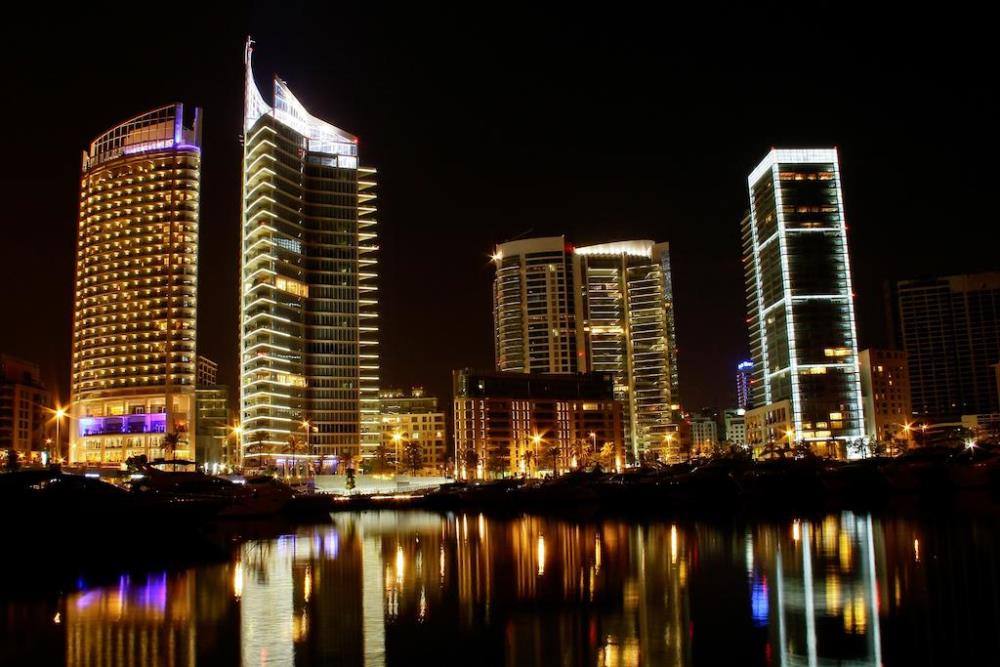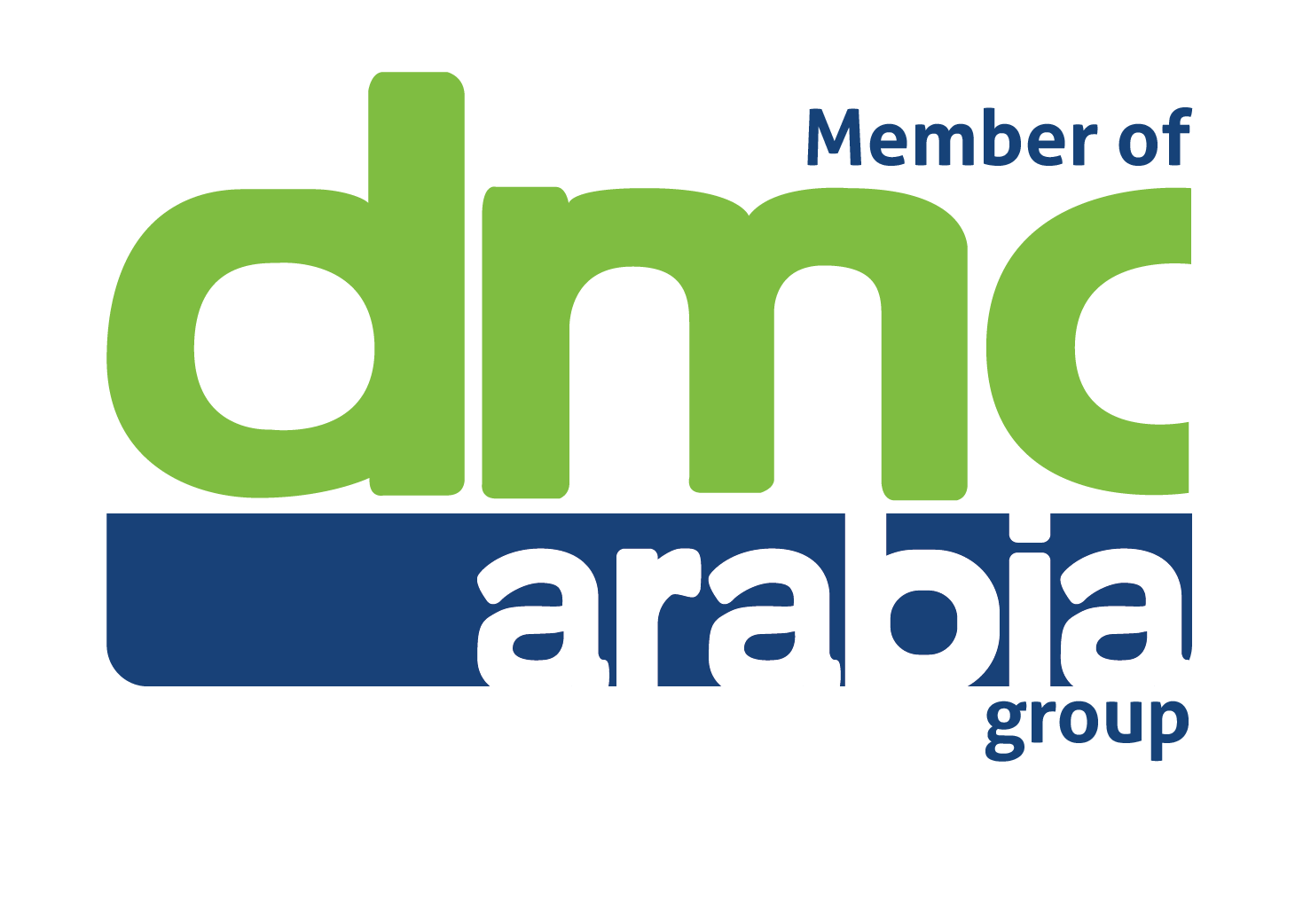LEBANON
Lebanon was as much a cultural melting pot in past centuries as it is today. The country benefits from a rich history, to which a number of archaeological treasures still stand in testament.
Many civilizations have thrived in Lebanon throughout the ages as also its numerous historic and cultural attractions.
GENERAL INFORMATION:
• Population: Approximately 4 million
• Official lLanguage: Arabic
• Other Spoken Language: English & French
• Religions: Muslim, Christian, Druz
• Area: 10452 Square Kilometers
• Climate: Mediterranean Climate, moderate rainy winter and long warm dry summers
• Capital: Beirut
• Government Type: Democratic Republic
• National Day: 22 November
• Local Time: GMT + 2 hours in winter and GMT + 3 Hours in summer
• Day Off: Sunday
• Official Holidays: 01 January, 09 February, Good Friday (Oriental & Occidental), Easter (Oriental & Occidental), 01 May, 15 August, 22 November, 25 December, 31 December, Al Fitr (Muslim Holidays date not fixed), Adha (Muslim holiday date not fixed)
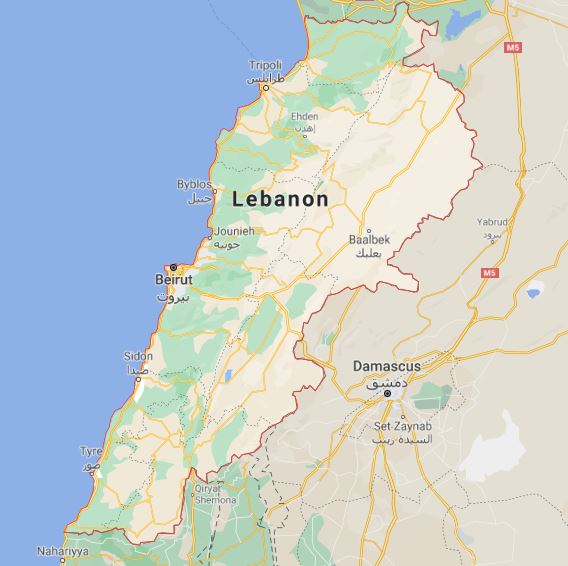
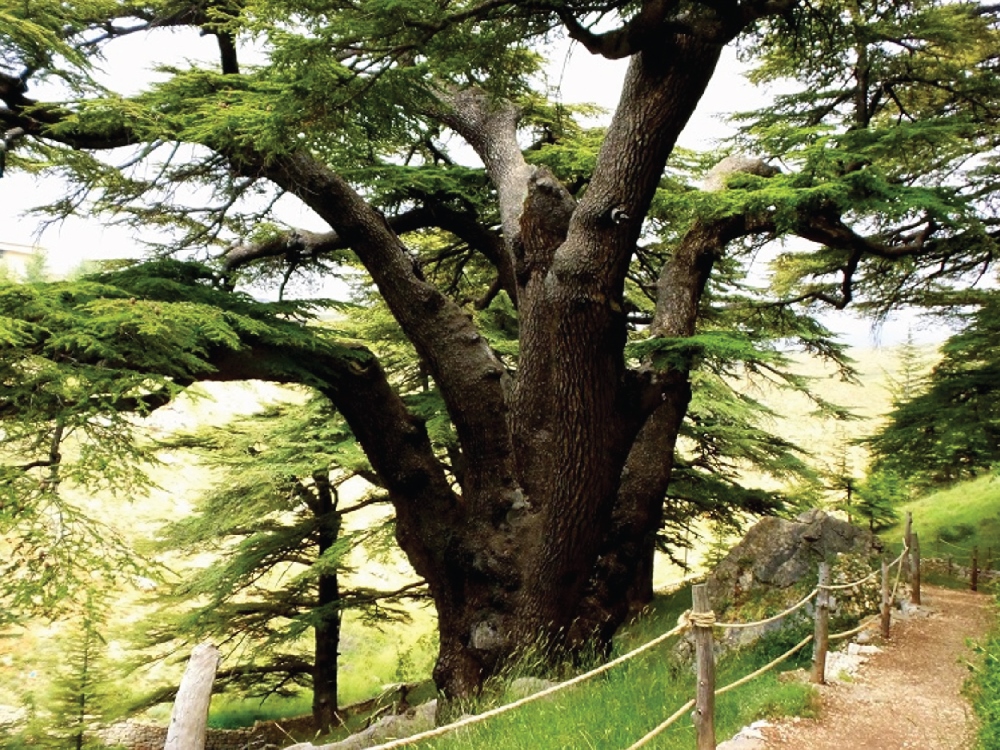
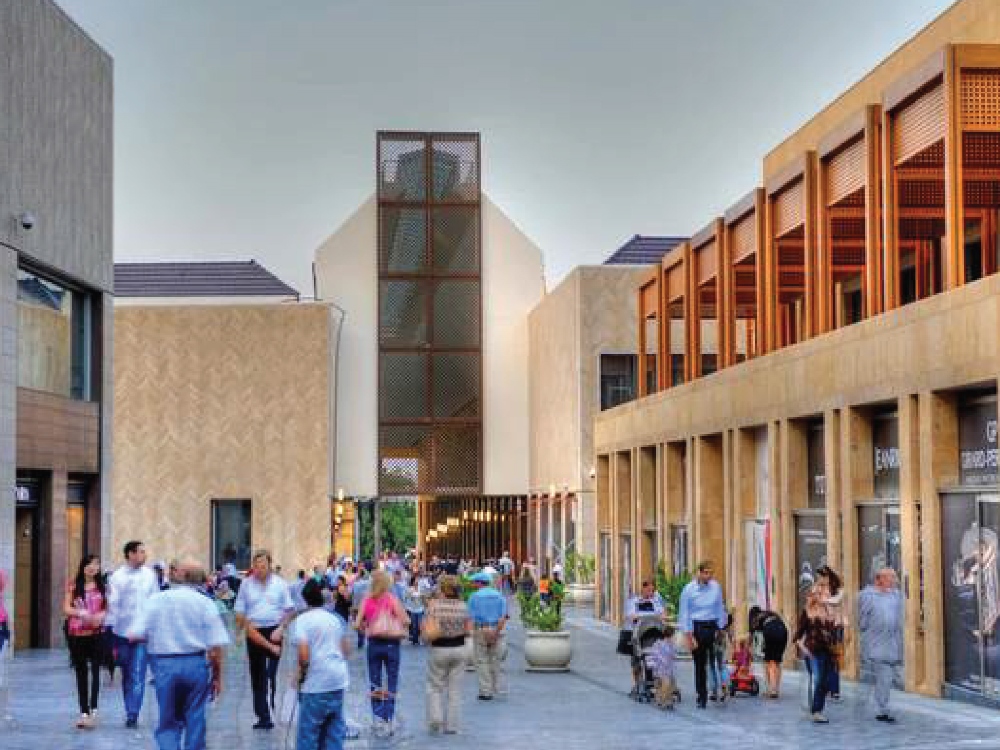
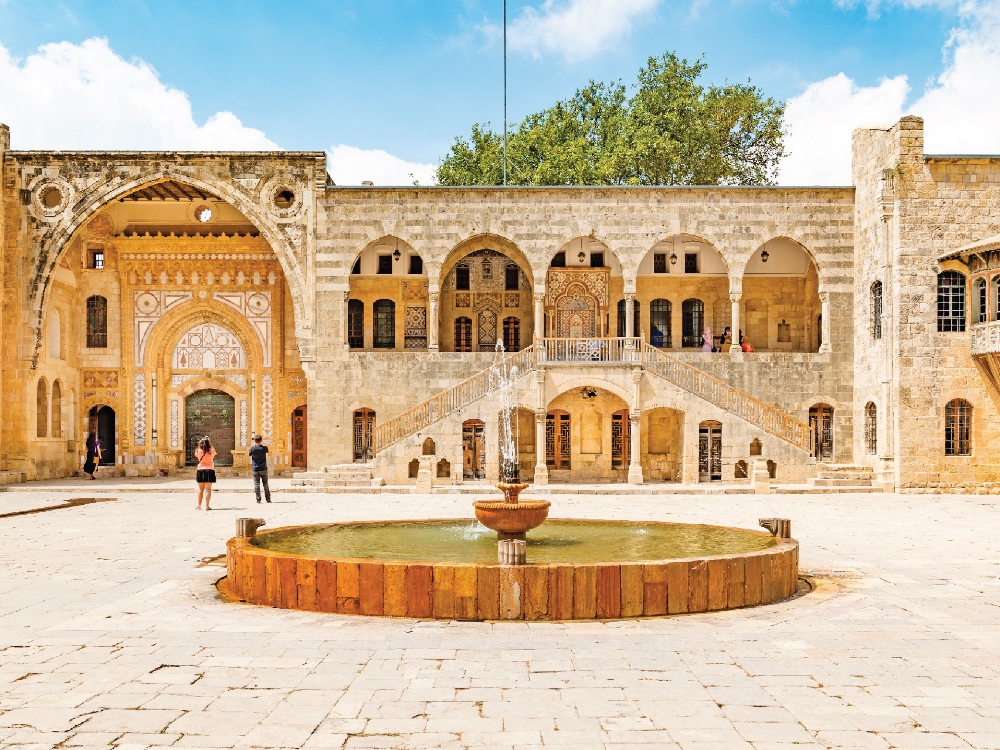
PRACTICAL INFORMATION:
• Money. The official currency is the Lebanese Pound. However along with the Lebanese Pound, the US dollar is widely used.
– Payment cards: Many shops, hotels, restaurants, bars etc,… accept international payment cards such as Visa, Master or American Express
– Automatic Bank Tellers: Withdrawal can be made from any automatic bank teller found in any region of the country
– Traveler’s Checks: they can be exchanged mainly in banks.
• Health. Lebanese medical care is well known for its quality. Hospitals, clinics and well supplied pharmacies can be found in all towns.
• Security is a constant worry for those visiting Lebanon for the first time. In Beirut, as in other towns and villages, streets are particularly safe day and night.
• Food. The extravagant Lebanese food represents the high point of the country’s hospitality. It is said that a true mezze table should present at least twice as many delicacies as can possibly be consumed by the guests at hand. Whatever the mezze’s rationale, it is love at first sight for almost everyone who samples it.The mezze can have 30 to 40 small dishes of appetizers, eaten with Arabic Bread ( khobz arabi) or with a salad leaf.
• Alcohol. Alcohol is permitted in Lebanon and its served in hotel restaurants and bars.
• Weather. Lebanon gets 300 days of sunshine a year. Coastal temperatures rarely fall bellow 15°C during the rainy winter, and may reach 31°C on average during the humid summer. This applies also to the region of the Beqaa valley. On higher altitudes, the air becomes drier and fresher. Major snowfalls allow skiing during the months of December until April. The intermediate seasons, spring and fall, vary between one and two months, and the average temperature is usually 21°C.
• Languages. Arabic is the Lebanese national language. However, it is also common to speak French and/ or English. The spoken language is a dialect called Lebanese Arabic, often combined with English and French. This dialect differs from the formal Arabic called “fos’ha” by being much less formal.
• Water. Most Lebanese homes have two water taps; one for domestic use and another one for potable water. It is not recommended to drink tap water, unless you are certain of its cleanliness.
• Clothing. Generally there are no particular cultural rules for this matter in Lebanon. However, wearing short clothing, such as short pants, is to be avoided in certain places such as the souk of Tripoli or Sidon… To visit religious places, modest clothing is required. Women need headscarves when visiting mosques, usually provided there.
• Photography. All photography and video equipment are available in Lebanon, and at better prices than in Europe and North America. Concerning development and printing, photo shops are abundant.
• Telephone. The first two digits of Lebanese telephone numbers are the area code
– Telephone booths are accessible for local and international calls
– International code for calling Lebanon is 961
– Payphone cards are available in post offices, kiosks and smoke shops at 15 000 LBP and 30 000 LBP
– Mobile phones are very popular in Lebanon; however most businesses and homes have land lines
– In case of an emergency useful numbers are: Internal Security Forces: 112; Red Cross: 140; Civil Defense: 125.
• Telecommunication. Internet connections are very common in Lebanon. Cyber-cafes are widespread in cities as well as most villages. Many hotels also provide internet connections.
• Electricity. The current is 220 Volts. It is not unusual to face electrical shutdowns that may damage sensible electrical machines. It is recommended to shut down any machine when not using it.
• Transportation. Public transportation is available. Bus stops are easily recognized. Collective taxis are also available. They are called “Service”. They are not expensive, price starting at 1000 LBP. Private taxis also exist. Price starts at 5000 LBP for a short trip. Kurban Tours strongly recommend “Allo Taxi” (phone number 01/366661 or 1213 from any land or mobile phone). Another mean of transportation is car rental. It is necessary to have an international driving license in case you don’t have a Lebanese one. Kurban Tours recommends “Avis Rent a Car” (phone number: 01/366662). Be sure at all times to drive on the right side of the road.
• Business Day. In general, shops are opened from 09:00 to 19:00 or 20:00, from Monday to Saturday. However, most shops in downtown Beirut open from 10:00 till midnight, seven days a week. Banks are opened from 08:30 till 14:00 from Monday to Saturday.
OUR DESTINATIONS IN LEBANON
AANJAR
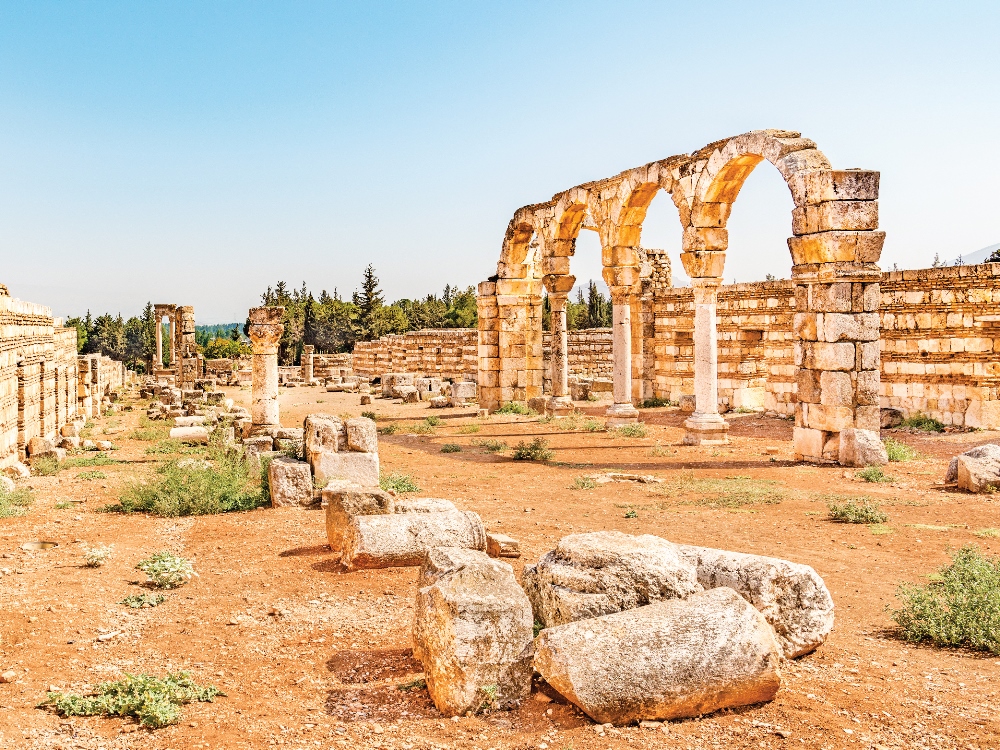
Aajar is an update on history. This Umayyad-period town was excavated only 40 years ago. Thanks to extensive reconstruction, the visitor gets a clear idea of what the town looked like when the Damascus-based Umayyad caliphs ruled the area.
DEIR AL QAMAR
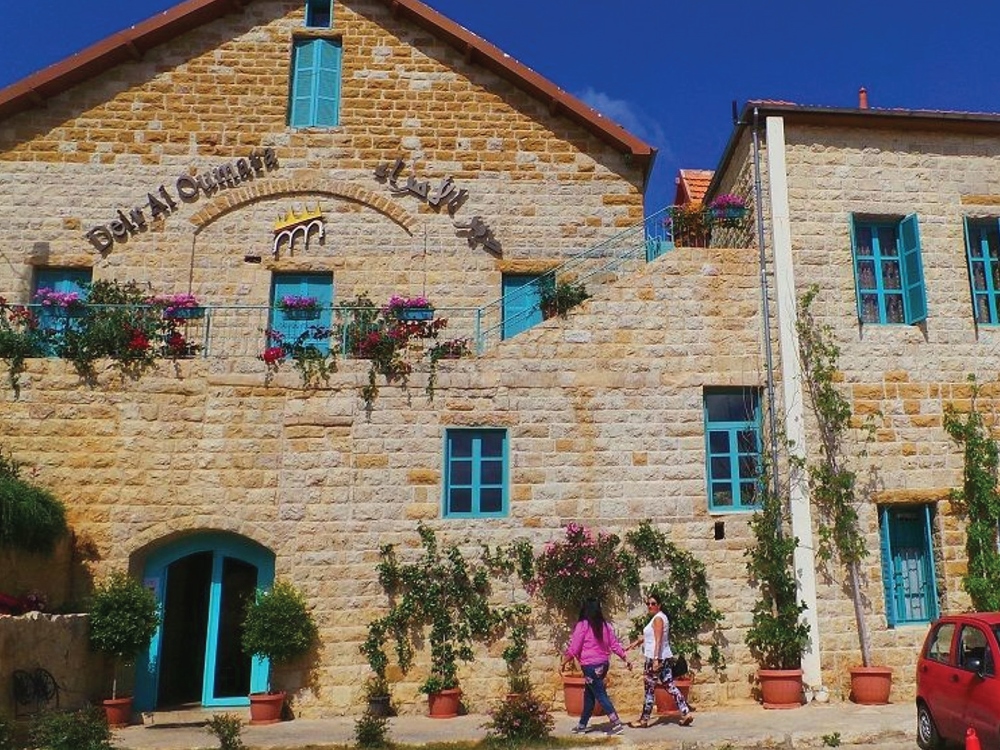
Just 5 km before Beiteddine, Deir Al Qamar is a village of white houses and red-tiled roofs. It was the residence of the governors of Lebanon in the 16th-18th centuries. Town’s historical treasures including the Fakhreddine mosque 16th century, palaces and administrative building of Lebanon’s governors.
HARISSA
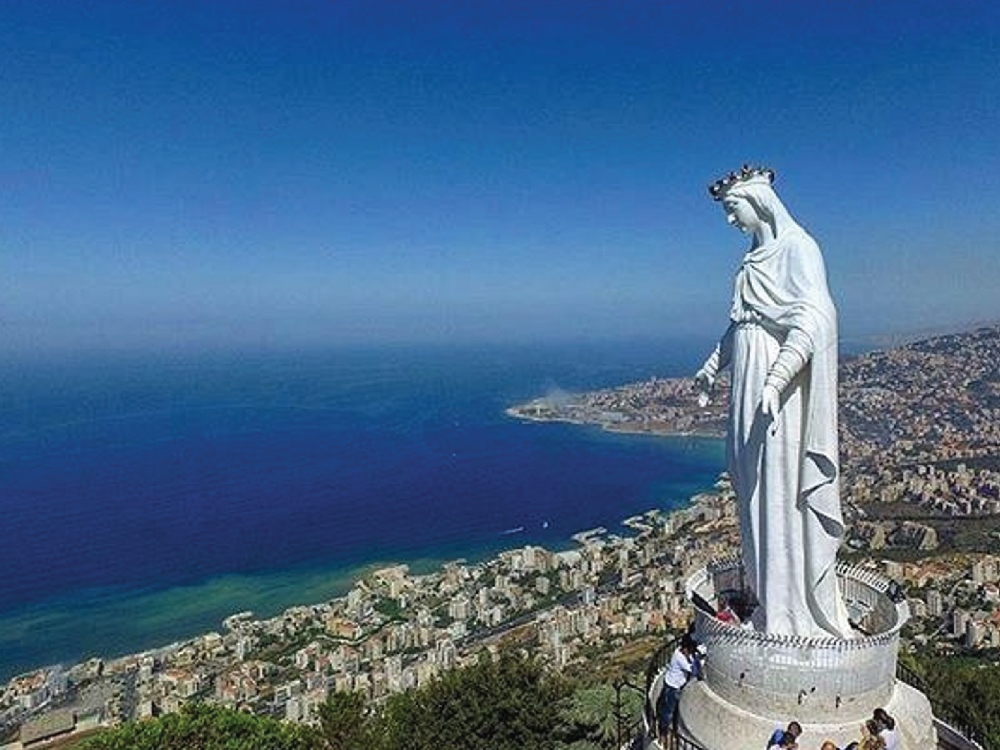
Harissa known for the magnificent statue of our Lady of Lebanon with its cathedral of a Phoenician boat shape, where we can take the cable cars down to Jounieh enjoying its unique and spectacular bay view.
BEITEDDINE
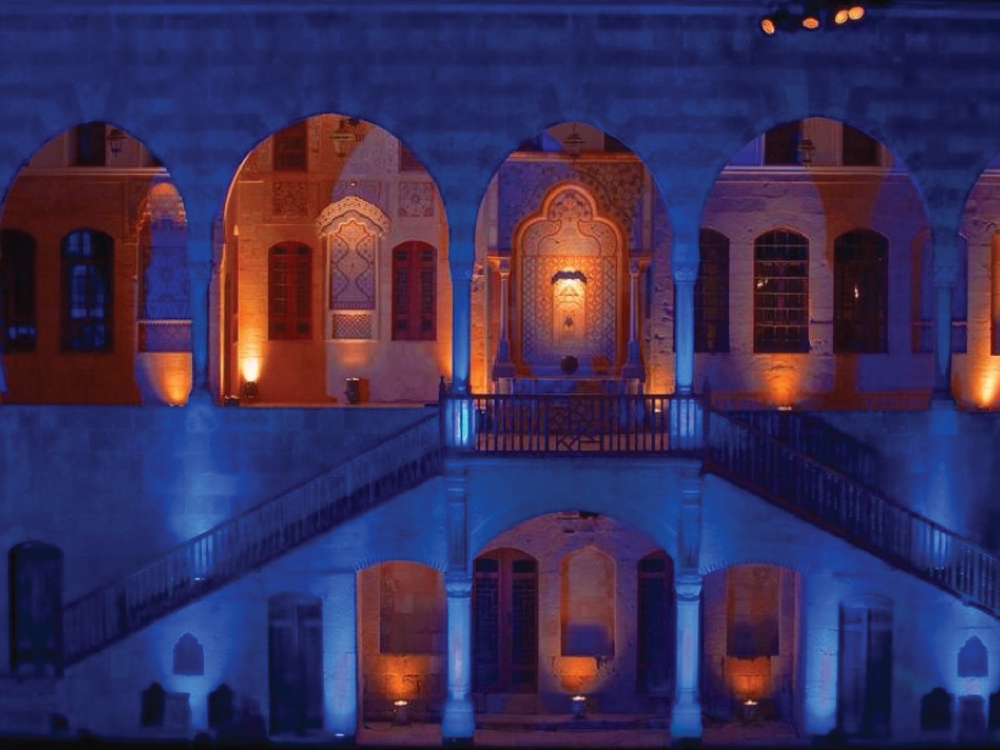
A beautiful drive into the mountain south east of Beirut brings you to Lebanon’s very own Alhambra, an 18th –19th Century palace of richly decorated ceilings, colorful marble mosaics, luxurious Turkish baths and Harem suites in a setting of beautifully groomed gardens. A folkloric museum occupies one wing. In the palace’s renovated stables are an exquisite display of mosaics from a ruined Byzantine church and other structures of the same period.
SIDON
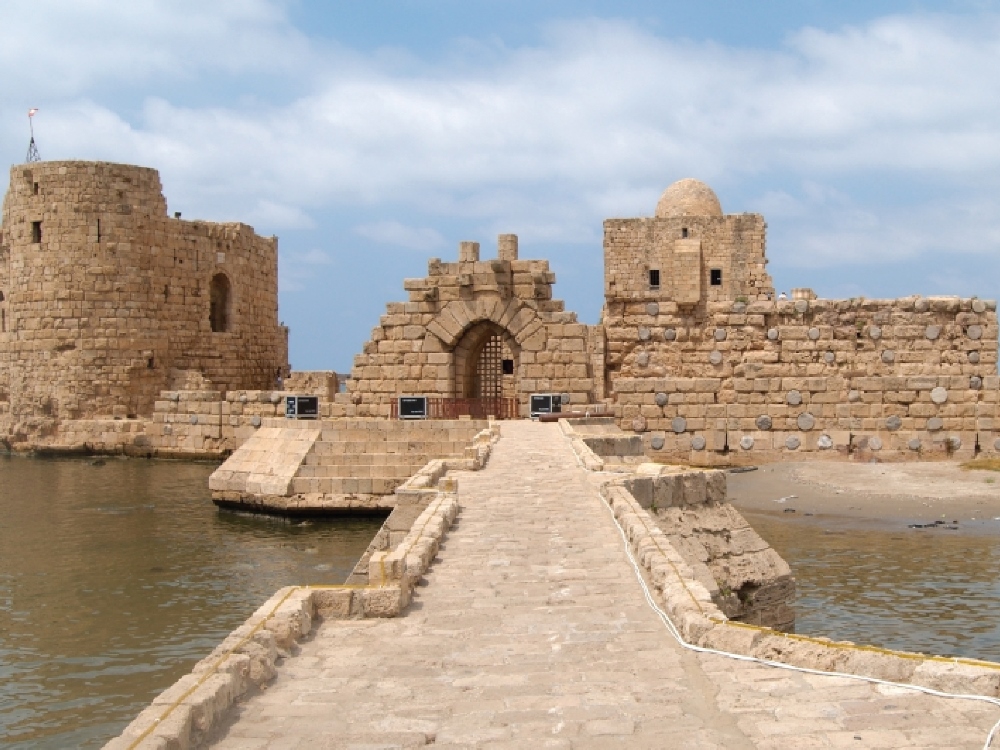
Sidon is the largest city in south Lebanon, a busy commercial center with pleasant, conservative atmosphere of a small town. Since Persian times, this was known as the city of gardens and even today, it is surrounded by citrus and banana plantations. Visit of the Sea castle, a fortress built by the Crusaders in the early 13th century on a small island connected to the mainland by a causeway. You will visit as well the caravanserail.
JEITA
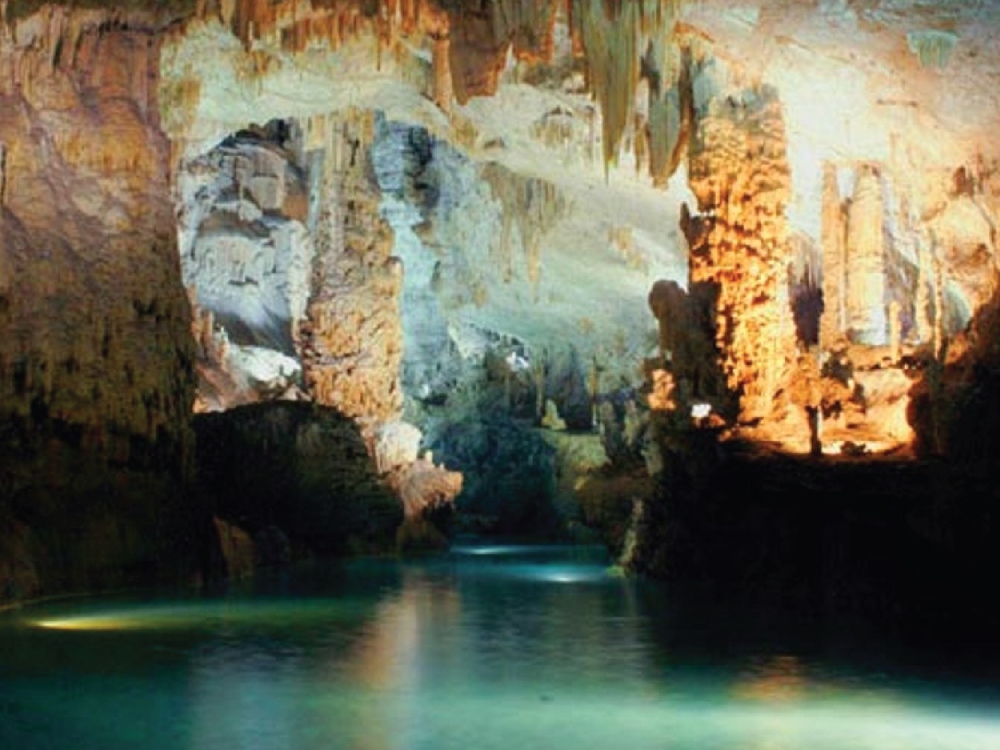
Jeita is Lebanon’s natural miracle, a striking nine kilometers labyrinth of galleries on two levels. The lower, river level offers a unique tour by flat-bottom boat past “weeping willows” and gigantic stone flowers. Equally striking is the upper grotto where monstrous mineral animals crouch in shady corners.
BYBLOS
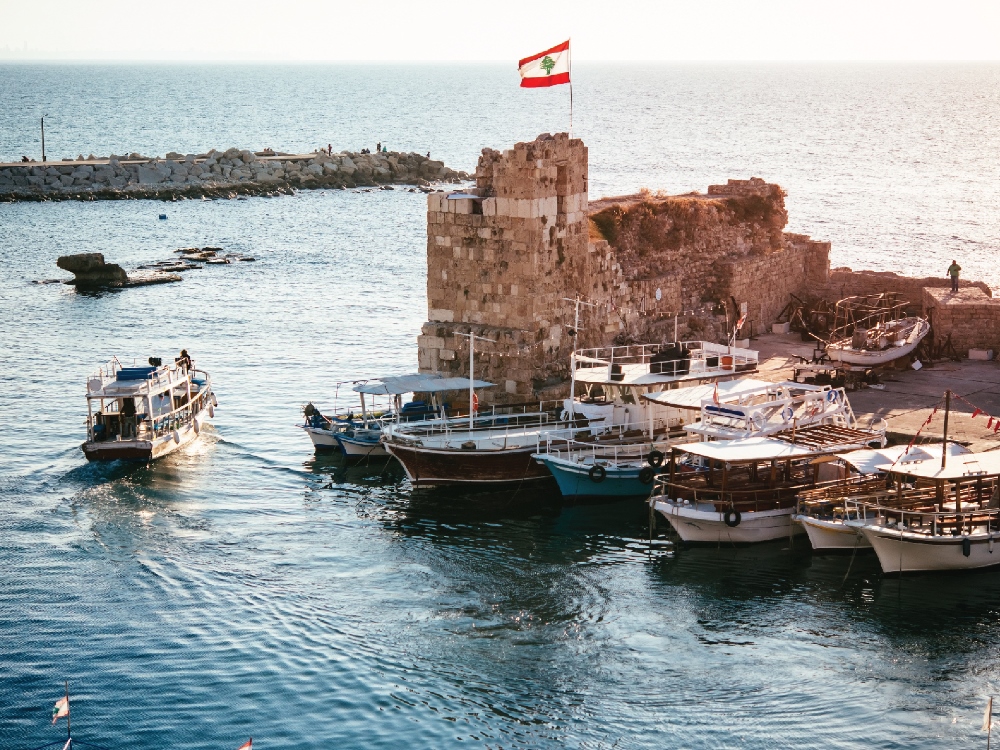
Byblos is the most ancient port in the world, and the perfect introduction to the many layers of civilization that has existed in Lebanon from at least the fourth millennium BC. Walk round the ruins from the Phoenician period from where King Ahiram’s sarcophagus was found, its inscription using the first ever alphabet. Also see the curious temple of the Obelisks dating from 1800 BC and the remains of a palace from the Persian occupation, the Roman Theatre and Nympheum, the well- preserved Crusader castle of 1108; the Crusaders’ Church of St. John and the surrounding streets and souks.
CEDARS
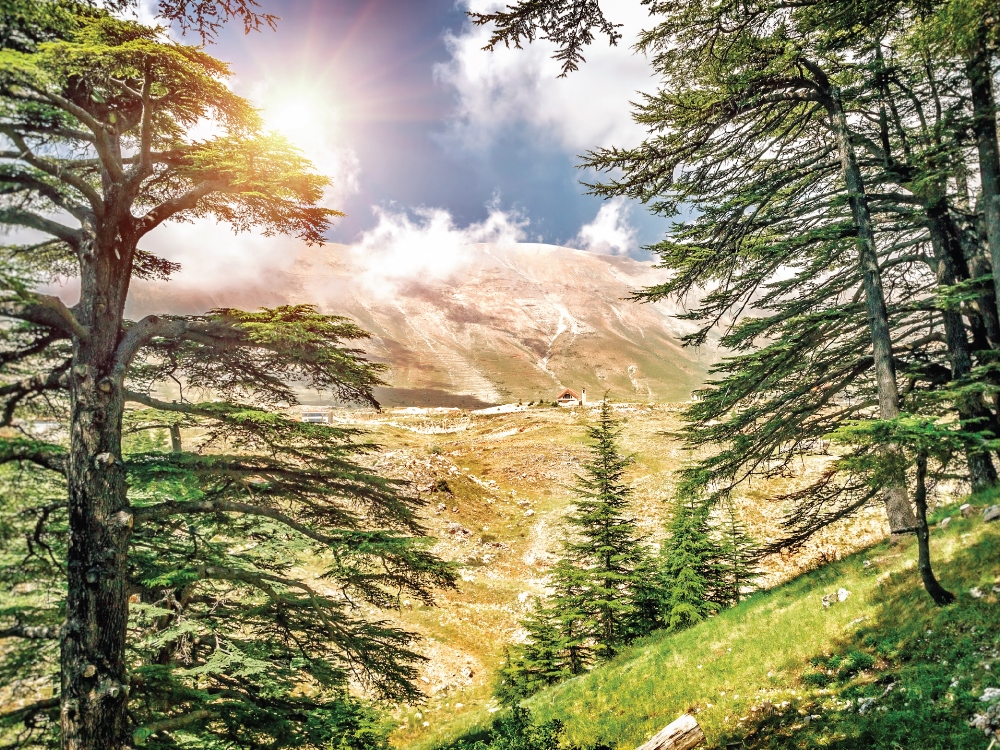
Since the first days of recorded time, Lebanon is known as the land of Cedars, and today it is still the emblem decorating the Lebanese flag. The tourist, who visits the ruins of Byblos, Tyr, Baalbeck, or Anjar, will not fail to visit the grove of Cedars to admire the specimens there, majestic and millennial. For centuries, the Phoenicians celebrated as ship builders in cedar wood, sailed the Mediterranean exporting not only their famous purple powder extracted from murex shells but also the precious cedar wood. These forests were so exploited that only a small forest remains with a centerpiece grove of 400 cedars, some of which are more than 1500 years old.
BAALBECK
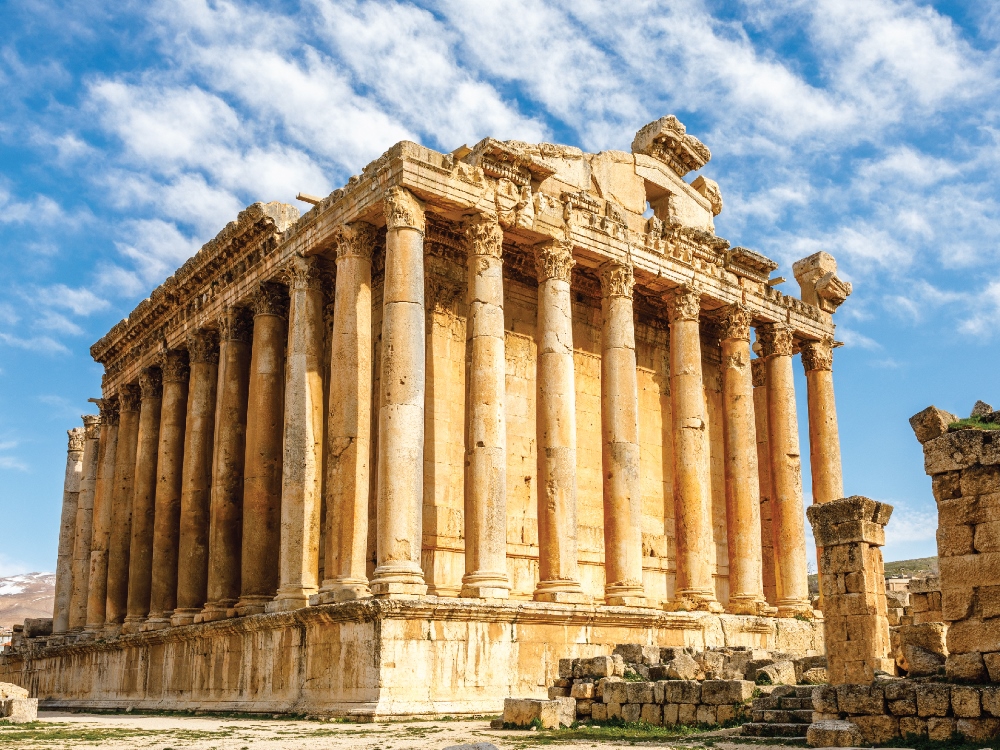
Towering high above the Bekaa plain, their monumental proportions proclaimed the power and wealth of Imperial Rome. The Greeks identified the god of Baalbeck with the sun god and the city was called Heliopolis or City of the Sun. The temple was never built; some huge construction from the Hellenistic project can still be seen. The temple complex of Baalbeck is made up of the Jupiter Temple and the Bacchus Temple adjacent to it. A short distance away is the circular structure known as the Temple of Venus.
HOTELS IN LEBANON
Lebanon is home to many highly-rated hotels, one of which is Intercontinental Phoenicia Beirut.
Beirut, the capital, is one of the most glamorous cities in the region, well on its way to reclaiming its title as the ‘Paris of the Middle East”.
The country offers several types of Hotel Accomodations from Hotel Apartment up to 3*, 4* and 5* world class hotels.
At Kurban Tours, valued our partners to offer the best of the best of our Hotel Accommodation that would fit all type of budgets with satisfaction and quality stay.
